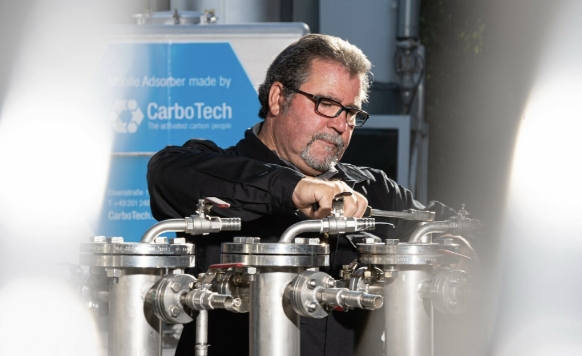- Service
- Sustainability

- Activated Carbon
- Applications
- Applications
- Air and Gas Purification
- Water treatment & waste water purification
- Food and beverage

- Fluid treatment
- Hydrogen purification
- Carbon molecular sieves (CMS)
- Individual applications

- Solutions
- About us
- News
Keyword-SearchContact us!Our experts will find the optimal solution for your request.

Desulphurising
natural gas- Home
- Applications
- Air and Gas Purification
Natural gas
NATURAL GAS IS A POWERFUL ENERGY SOURCE
However, this can only be used if the natural gas has been processed accordingly and the unwanted hydrogen sulphide has been removed. If natural gas is burned without these two steps, sulfur dioxide is produced during combustion. A gas that contributes massively to air pollution: Among other things, it causes “acid rain” that damages people and plants.
For desulfurization, the natural gas is passed through adsorbers filled with activated carbon. These can be mobile or permanently installed. In both cases we can offer the customer a suitable solution. In addition to pure activated carbon products and an extensive 360° service, our range also includes a large range of mobile Plug & Clean solutions, which are individually selected by our sales team as part of a comprehensive consultation to suit the customer project.
Carbon with 100% adsorption ratios
For desulphurisation, the natural gas is passed through large adsorbers filled with activated carbon. Our highly activated carbons offer adsorption ratios of 100%. One tonne of activated carbon is thus able to absorb one tonne of sulphur. Specially impregnated, it meets exacting requirements to optimum effect.
Major energy companies have been placing their trust in our activated carbon for many years. Our product quality and our dedication to service make CarboTech a partner you can rely on.
Why not see for yourself? Our experts will be happy to help!
- Sustainability